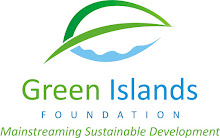I first visited Denis Island in 1998 with Dr Don Merton to undertake the first preliminary assessment of rats and cats on the island. Don, who works for the Department of Conservation in New Zealand, is the man who pioneered rodent eradications on islands and during the time we spent on Denis we surveyed the rat and cat populations and tested their bait type preference etc…
I clearly remember our night time surveys around the pig farm where the beam of a torch would reveal the glittering eyes of literally dozens of cats that gathered there to feed in the evening. Whilst our walk-in traps all caught rats each night – the density of these predators on the island being extraordinarily high!
It was thus particularly surprising, to me at least, to hear the call of a lone wedge tailed shearwater in the woods one evening. I subsequently made enquiries with some of the island staff and they confirmed that though wedge tails (known locally as “Fouke”) did roost occasionally on the island they did not breed.
That they did not breed is to be expected, as the Fouke excavates and lays its eggs in subterranean burrows that it vacates during the day whilst off fishing. This species is therefore particularly vulnerable to rats and simply can not co-exist with them in the long run.
Rats were finally eradicated from Denis in 2002 and during the subsequent years the number of roosting shearwaters has increased particularly on the ground in certain coastal stands of Scaevola. November 2007, however, marked a major landmark in the rehabilitation of Denis when Island staff found a small colony of wedge tail burrows on an isolated portion of the east coast. I checked the area and was able to confirm the presence of the birds in the evening; but though likely at that time I did not succeed in finding proof of breeding.
Wedge-tails can be breed at any time of the year but have a very definite seasonal peak with chicks hatching November/December and taking 10-12 weeks to fledge. I will be looking out for the birds in the coming months and hope to be able confirm the re-establishment of a breeding colony on the island. Should shearwaters breed on the island this will be a major breakthrough in the rehabilitation of Denis and further justify the investment started 10 years ago by the island owners.
Subscribe to:
Post Comments (Atom)

























No comments:
Post a Comment